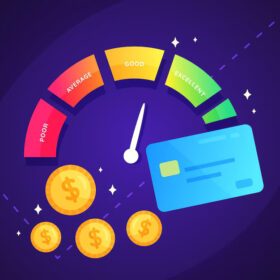The Relationship Between Credit Scores and Interest Rates

First of all, it’s important for you to know that credit scores are designed to make lenders’ decisions easier. Banks, credit unions and any company want to know how much of a risk you might be when it comes time to make good on a loan.
That’s why they look at your credit history, so they can see how responsible you are. They want to know if you’ve borrowed money and if you’ve made good on it.
But, a very important fact is to know the relationship between your credit score and the interest rate. The interest rate a lender offers you has a big impact on the cost of borrowing money.
The lower interest rate makes it less expensive to get a loan or use a credit card because there is less interest added to your monthly payment. Lower interest rates are highly sought after because you pay less money to who you have borrowed money from.
Banks and companies that provide some type of service use your credit score to help them set their interest rates based on your credit score. This is why people look for good credit and excellent credit scores when they apply for services or loans.
Your credit score is a number that measures your creditworthiness. It tells lenders how likely you are to pay your bills on time or repay the money you borrow.
Higher credit scores are the best because they indicate that you have handled credit well in the past and have every chance that you will repay the new credit you apply for on time. Unlike low credit scores, these show that you have made big mistakes on your old credit and may not make all your payments if you are granted new credit.
These credit scores range from 300 to 850, with a score over 670 being considered good and a score over 740 being considered very good.
So keep in mind that your credit score can affect your loan rate. With loans, an average rate is often advertised rather than a range. If you have a good credit score, you may qualify for a rate that is at or below average.
On the other hand, with a bad credit score, you may end up with a rate well above average.
Having a low credit score could not only affect your loan rate, but also your credit card rate. Credit card issuers disclose an average potential interest rate with every credit card offer.
They do not advertise which credit score will give you a specific interest rate. That won’t be determined until you apply for a credit card. In general, if you have a good credit score, you can expect to receive a lower APR. With a bad credit score, you will receive a higher APR.




